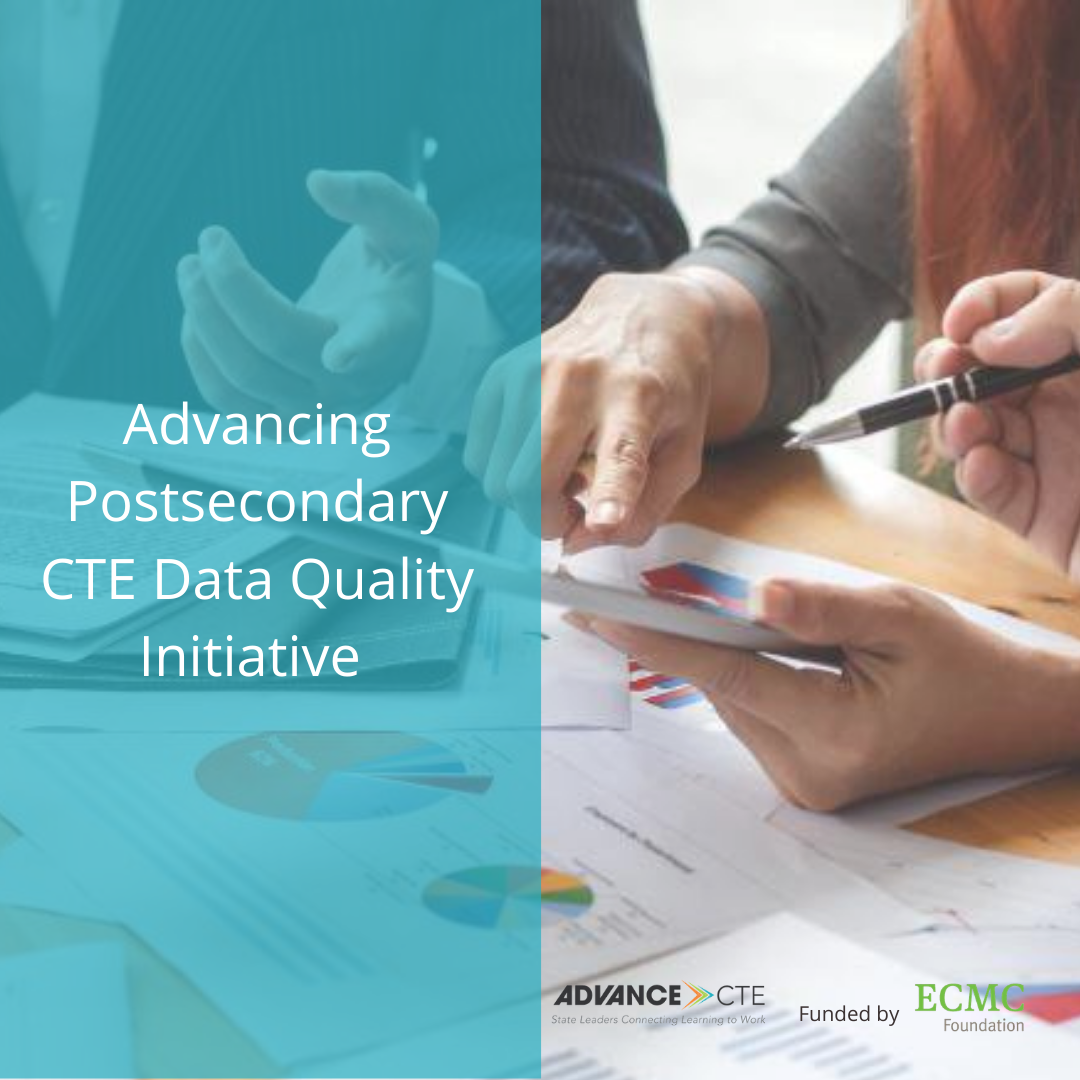 Advance CTE Announces New State-led Initiative
Advance CTE Announces New State-led Initiative
Even before the passage of the Strengthening Career and Technical Education for the 21st Century Act (Perkins V) in 2018, nearly every State CTE Director said that improving the quality and use of CTE data was a top priority in their state. Now, with Perkins V implementation fully underway and COVID-19 (coronavirus) impacting education delivery, it is more important than ever for states to have access to high-quality, actionable CTE data.
In this environment, Advance CTE is excited to announce the Advancing Postsecondary CTE Data Quality Initiative (PDI), generously supported by the ECMC Foundation. Through the initiative, five grantees will receive grant funding, technical assistance and access to a national peer learning network to examine critical problems of practice and implement innovative solutions to improve the quality and use of postsecondary CTE data. Participating states and agencies include:
- Alabama Community College System
- Delaware Department of Education
- University of the District of Columbia Community College
- Florida Department of Education
- Oregon Higher Education Coordinating Commission
Each of the five grantees is well positioned to either accelerate existing work around CTE data quality or push the envelope in new and creative ways. Alabama aims to improve the accuracy of postsecondary CTE enrollment data through the use of its new P20W data system. Delaware strives to implement a new performance accountability model to enhance data linkages and expand access to postsecondary career pathways statewide. Florida is focusing on developing new data models and collection procedures for postsecondary work-based learning programs. The District of Columbia will maximize peer and specialist support to advance its postsecondary CTE data system, which is in its early stages. Oregon will focus on improving data collection and sharing to monitor outcomes for learners in short-term credentialing programs, particularly groups severely impacted by the Coronavirus.
Over the next two years, grantees will work together as a peer learning network to develop, test and scale innovative strategies. Throughout the initiative, Advance CTE will share promising practices and lessons learned with the field through a series of blogs, webinars, presentations, publications and tools.
Data is a powerful tool to improve equity and access and strengthen program quality. But it takes leadership and a coordinated strategy to make data work for learners. Advance CTE is excited to work with these states through the PDI to push the envelope on postsecondary CTE data quality. To learn more about the PDI, visit https://careertech.org/initiatives.
Austin Estes, Manager of Data & Research

